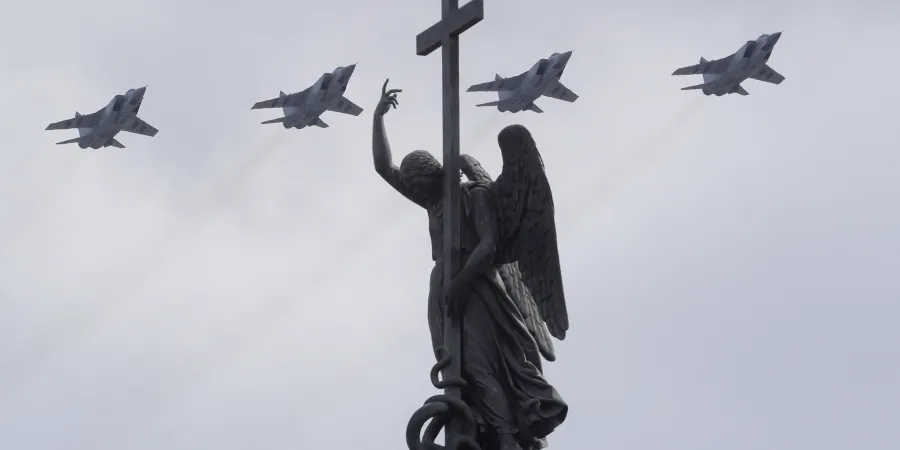Russia's Future Aircraft: "MiG-41" Interceptor
According to the CEO of the MiG Corporation, the new interceptor aircraft will be able to reach space and potentially operate without a pilot
Dan Arkin
| 28/08/2017
Russia's new MiG interceptor aircraft will be able to reach space and even potentially operate without a pilot, according to Ilya Tarasenko, CEO of the MiG Corporation. The new fighter is expected to replace the aging long-range interceptor MiG-31 and its variants.
The research and development of the PAK DP (perspective aviation complex of long-range interceptor), dubbed by media with the unofficial designation MiG-41, was launched by the MiG Corporation in 2013. Tarasenko believes that the new interceptor might go to into production by the mid-2020s.
"(The development) is at the stage of finalizing the image of the plane. It will be a gradual transition from MiG-31 to PAK DA," Tarasenko told RT at the Army-2017 expo.
However, the aircraft will not be just a modernization of MiG-31, but an entirely new machine, having "the ability to operate in space, new weapons, new speeds, new operational range," Tarasenko told Zvezda TV channel.
"It will be an entirely new plane, where entirely new technologies to operate in the Arctic zone will be utilized. This plane will safeguard the whole border of our homeland. Later, the project will become unmanned," TASS quoted Tarasenko as saying.
The new plane should be able to fly at speeds at least four times faster than the speed of sound. If the plane would be able to reach such speeds, it would be likely equipped with artificial intelligence control systems, to help human pilots to cope with the extreme flight conditions. The fighter might also be equipped with laser weapons to intercept enemy missiles.
[Source: RT]
According to the CEO of the MiG Corporation, the new interceptor aircraft will be able to reach space and potentially operate without a pilot
Russia's new MiG interceptor aircraft will be able to reach space and even potentially operate without a pilot, according to Ilya Tarasenko, CEO of the MiG Corporation. The new fighter is expected to replace the aging long-range interceptor MiG-31 and its variants.
The research and development of the PAK DP (perspective aviation complex of long-range interceptor), dubbed by media with the unofficial designation MiG-41, was launched by the MiG Corporation in 2013. Tarasenko believes that the new interceptor might go to into production by the mid-2020s.
"(The development) is at the stage of finalizing the image of the plane. It will be a gradual transition from MiG-31 to PAK DA," Tarasenko told RT at the Army-2017 expo.
However, the aircraft will not be just a modernization of MiG-31, but an entirely new machine, having "the ability to operate in space, new weapons, new speeds, new operational range," Tarasenko told Zvezda TV channel.
"It will be an entirely new plane, where entirely new technologies to operate in the Arctic zone will be utilized. This plane will safeguard the whole border of our homeland. Later, the project will become unmanned," TASS quoted Tarasenko as saying.
The new plane should be able to fly at speeds at least four times faster than the speed of sound. If the plane would be able to reach such speeds, it would be likely equipped with artificial intelligence control systems, to help human pilots to cope with the extreme flight conditions. The fighter might also be equipped with laser weapons to intercept enemy missiles.
[Source: RT]



